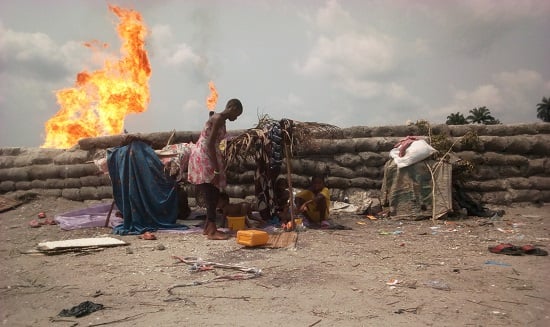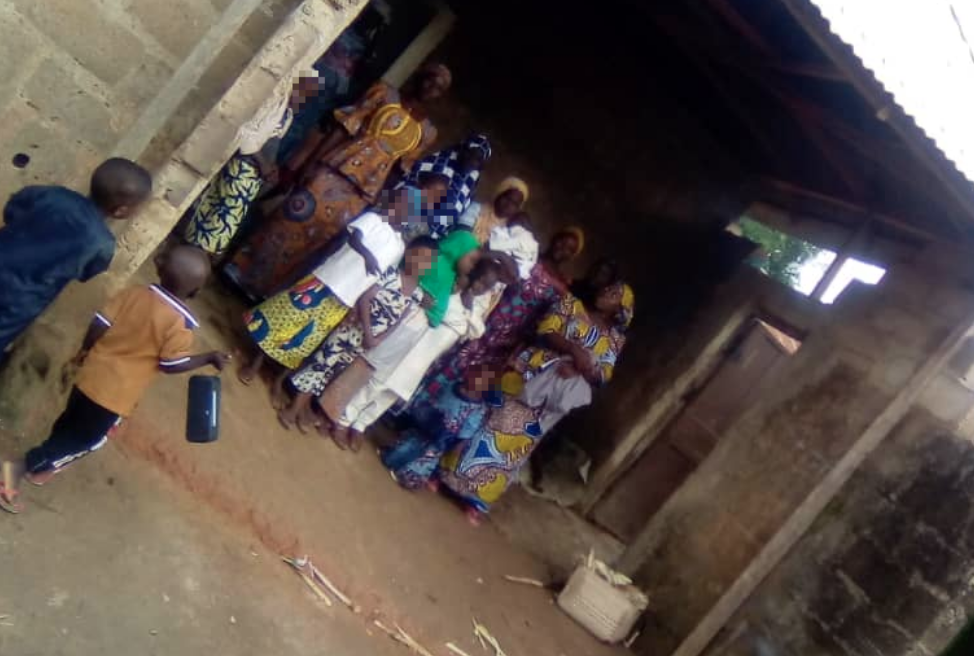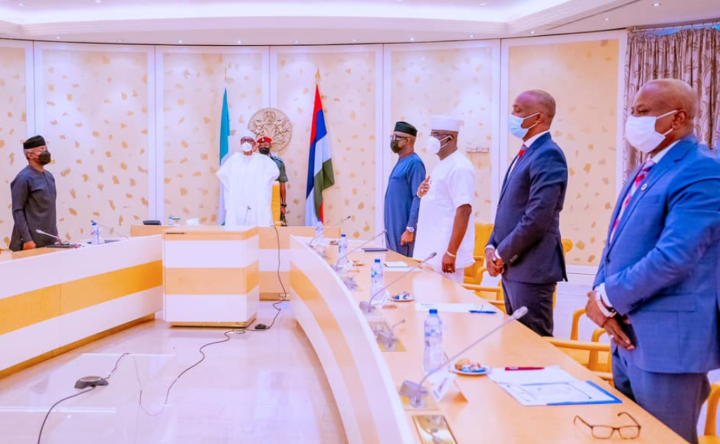Unknown to many, the north-east of Nigeria, which has courted global notoriety as a theatre of war between Nigerian military troops and Boko Haram insurgents, is not all about war, sorrow and stagnation. In the midst of the agonies of war, the north-east is picking bits and pieces of its life, especially in agriculture, which has been its mainstay from time immemorial. It does this with the aid of some organisations, chief among which is the International Institute of Tropical Agriculture (IITA) with its headquarters in Ibadan, Oyo State.
One of the ways IITA is making life meaningful for the war-ravaged area is through its Feed the Future Nigeria’s Integrated Agriculture Activity (IAA). Conceptualised as one of its interventionist agricultural activities aimed at developing capacities of youth and women in farm and non-farm enterprises, the IAA has succeeded in supporting farmers in this challenged part of Nigeria by providing them training and value chain mentorship.
Aishat Jalaludeen is one of the success stories of the IAA in this respect. A 2013 diploma graduate in Islamic Studies from the Adamawa State Polytechnic, she possessed no basic skills or understanding of poultry farming. A mother of two kids who lives with her husband, a tailor, in a one-bedroom apartment in Yola South, Adamawa State, Jalaludeen hawked sachet water on the streets of Yola to be able to fend for herself and support her young family of four. Apart from the attendant risk of this water-hawking trade, she got exposed to further dangers on the street like road accidents and persistent fatigue. Her daily take from this highly demanding venture was about ₦100 profit per day. For a young woman who had a daughter, Rukaya, who in turn had to miss school as a result of paucity of upkeep, Jalaludeen’s exposure to IAA in June 2020 was her saviour.
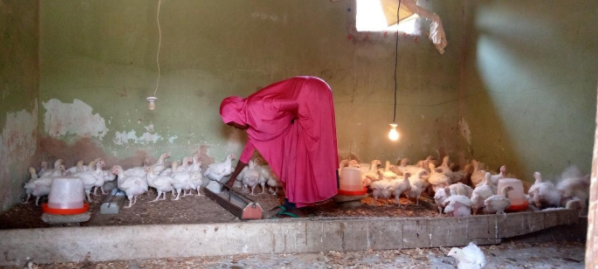
“I was doing the sachet water hawking because there was nothing else to do. Many times I encountered losses and serious harassment doing the business,” she said in an interview.
Advertisement
Jalaludeen’s turnaround was when the IAA team, working in partnership with the Yola South Social Welfare Board, during the search for prospective entrepreneurs in Yola South LGA, found and identified her. Seeing better prospects in poultry farming than sachet water hawking, Jalaludeen was spotted by the trainers due to her demonstration of keen interest in farming as possessing prospect for more profit. She was then subsequently enrolled in the June 2020 Batch of the Poultry Business Enterprise training which was held at the AADIL Centre, Yola.
IAA north-west zone’s training intervention centered around good care, nutritious feed, and medication for poultry products. Today, Jalaludeen has begun the ninth poultry production set in her sure step to self-sustenance and independence. After the initial free training, she started experimenting with about two to three chickens, scaled up to purchasing 50 chicks for the sum of ₦15,000 got from a soft loan provided her. In the first six weeks of her “graduation,” Jalaludeen got the sum of ₦80,000 from the chickens she sold, from which she made a net profit of ₦20,000.
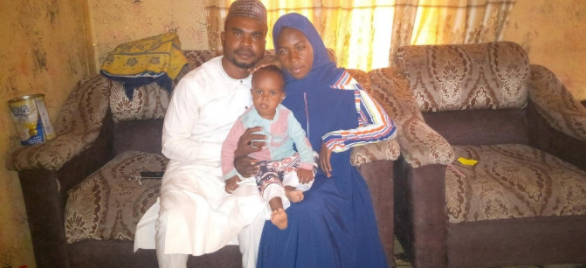
Today, Jalaludeen’s marriage is more strengthened with her ownership of a poultry pen that boasts of over 100 chickens and five turkeys. From August 2020 when she began, she had made a profit of about ₦35,000 every month, providing support to her family and being able to afford the payment of her daughter’s school fees, as well as helping her aged parent’s medication. Jalaludeen is one of the scores of women and men in the north-east whose lives have been transformed by the IITA’s IAA scheme.
Advertisement
IAA is part of the US Government’s Global Food Security Act, awarded in July, 2019 by USAID Nigeria to IITA and its partners for the economic recovery in Nigeria’s north-east. The aim of the project is to support vulnerable populations scattered in the 12 Local Government Areas of Adamawa and Borno states. The modality was for the IAA “to engage vulnerable groups in basic farming activities so that there can be an improvement in food security, create an increase in agricultural incomes, as well as improve resilience for food production in areas that had smallholder farmers. This can be got through strengthening institutions and market networks, youth, and women in agribusiness activities.”
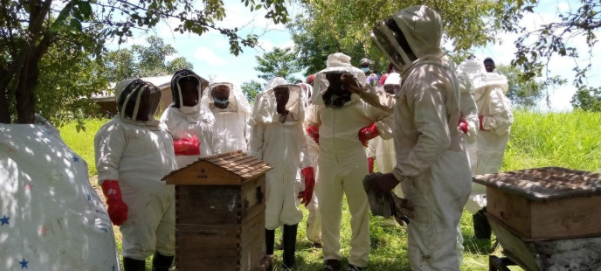
The officers of IITA based in the north-east of Nigeria, are saddled with the task of driving this effort. Akinyele Bankole is the Youth-Led Enterprise Development Officer of the programme, and Omokanjuola Dolapo Youth-Led Training Officer both stationed in Biu, Borno State, while Sini Luwa, Youth-Led Training Officer and Maureen Stanley Youth-Led Enterprise Development Officer are in charge of training youth and women in Adamawa state under the USAID Integrated Agriculture programme.
Akinyele, who hails from Ekiti State, was a youth corps member in IITA in 2012 and was one of the youths who began the Youth Agripreneurship programme which has since gone beyond Nigeria and across Africa. Transferred to Kano to begin the programme in 2016, Akinyele was subsequently seconded to the IIA project in Borno State. In an interview, he said the north-east intervention project had three components – agronomy, market system and nutrition, as well as the youth, women and gender. He works with the latter component. According to him, working as a team, IAA conducted series of training on farm and non-farm activities, with youth and women in rural areas in Borno and Adamawa offices being the targets.
In Adamawa, the team operates in seven Southern local government areas while in Borno, it is five councils. In Borno, the areas of operation are Biu, Kwaya-Kusar, Bayo, Shani and Hawul. With a strong database where participants are profiled and registered, the team has about 62,000 participants in its captured data. Working with existing youth and cooperative groups in those local governments and with data provided by the councils, IAA discovered that it was better meeting the women and youths captured as individuals. Using a group of people called Community Mobilisers, one male and female, staff of each of the local governments, the mobilisers serve as focal persons in each of the councils. They are contacted whenever IAA had a project in any of the areas. The mobilisers communicate with the communities in their local language and the training becomes far easier for the team.
Advertisement
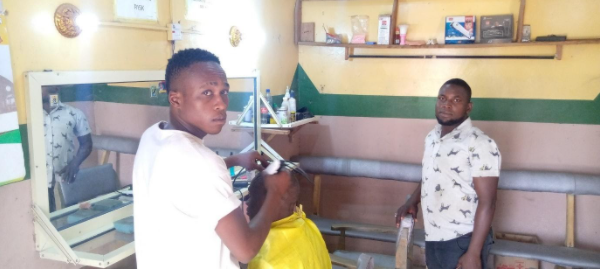
Market-driven, the IAA project in this war-torn area impacts the rural dwellers’ lives remarkably. It builds capacity due to the joblessness of most women and youths in the war-torn area. Akinyele said the team had done crop production training and entrepreneurship on its mandate crops that include maize, sorghum, rice, groundnut and cowpea and that it had trained 525 women and youth between 2020 and now, which broken down further, is 192 male and 333 female. On poultry production, the team said it had trained 332 women and youth, with 171 male and 161 female participants trained on meat and egg production across the seven councils of Adamawa State. In each of the training, entrepreneurship is given central focus, which the team leader said takes about forty percent of the team’s energy. The aim, said Akinyele, is to make the women and youth self-sustaining after the exercise.
Breaking it into specifics of the impact, Akinyele told the story of a graduate of the training trained on Tomapepo production – a blend of tomato, pepper and onion preserved in a glass that has a shelf life of 12 months. This was a particular lady in Hawul local government called Zarau Abdulahi, a divorcee, of about 25 years old. Abdulahi showed strong interest in the training. She thus began the Tomapepo production on her own with about N5,000. With this, she produced about nine bottles and sold each at an average of N1,500. As she expanded, said Akinyele, Abdulahi was faced with the challenge of marketing the product, until the team again came to her aid. Though based in a rural area, the team helped her network buyers. During the scarcity of tomatoes during the Sallah festivity, she was said to have made good money out of the sale.
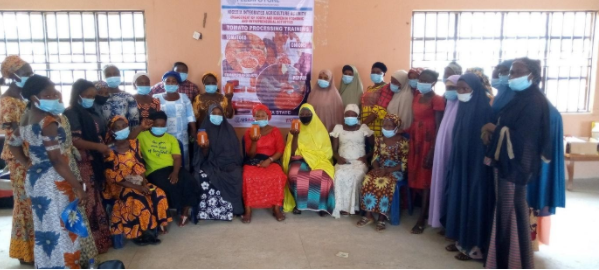
Tomapepo production, an initiative introduced by IITA to their participants, has during this time of war in both Borno and Adamawa states, impacted so many lives and helped farmers tremendously. During tomato season, there used to be glut and wastage of tomatoes but since the Tomapepo innovation, farmers are able to keep tomatoes available for people’s usage, even off-season.
“There used to be wastages of tomatoes but now, farmers produce and keep them till offseason. They sell and make money. So many women, groups and associations in many local governments have done their own production and sell, even at high prices. We had to collect from some of them and helped them sell because the demand was becoming high. We mopped up from them in the rural areas and brought to town to sell to many who couldn’t get them. We, in turn, sent the proceeds to the farmers,” said Akinyele.
Advertisement
He made reference to another woman in Hawul local government, a beneficiary of IITA training on cosmetology who, along with others, was trained on production of liquid soap, bar soap, hand sanitiser, jelly and hair cream, shampoos and the like. She took it as a personal business and today, she is a major supplier of liquid soap and hair cream in the community and now has her own cosmetology brand.
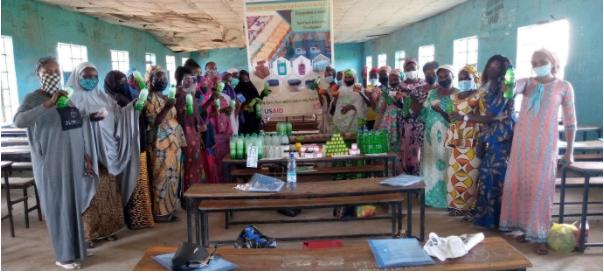
The IAA programme also trains women and youth in entrepreneurship programmes. This also includes animal husbandry and fattening; spray service provision – use and handling of chemical which is very poor in the rural areas; fish farming; honey and hive production. According to Akinyele, IAA trains the people in this war-torn area on vocational acquisition like barbing, vulcanising, shoe-making, tailoring and the like.
Advertisement
He however acknowledges that the Boko Haram insurgency has had a strong negative impact on the activities of the group. “In Hawul local government area for instance, the last time we visited it was in September or October last year due to the security threats in the area. Most of the activities that we were supposed to go for, we had to make use of community mobilisers. We couldn’t go to so many other communities because we couldn’t access them. On the community people themselves, most of them cannot go to farms again because, sometimes they get kidnapped and killed. It has affected their production and yield a lot. A land that is supposed to be used by one person is shared by three people,” he said.
Akinyele also said that one of the mandates of Component Two of the IAA intervention is to source for soft loans for the farmers in both states.
Advertisement
Sini Luwa, from Michika Local Government of Adamawa State, also got to IITA as a corps member. Fished out by Dr. Nterenya Sanginga, the director-general of IITA, on one of his visits to the institute’s Abuja office, Luwa said Sanginga took interest in him at first sight and brought him to Ibadan to observe the activities of the youth programme in agriculture.
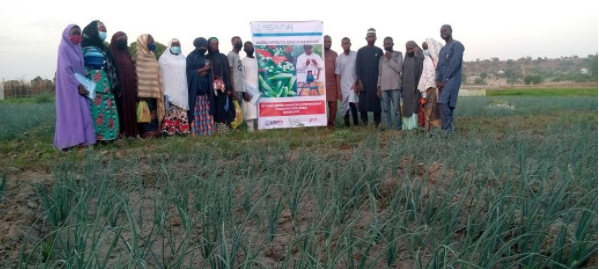
Luwa covers seven local governments of Adamawa State for the IAA project, viz, Gombi, Hong, Song, Yola South, Fufore, Demsa and Guyuk. He said IAA possesses a database of about 62,000 farmers which gives the team a holistic scope of work. Identifying the cooperatives and the leaders of associations in the areas, the data become the pillars of engagement for IAA’s interventions. He also said the team did needs-bade analyses of the trainees which enabled it to gather information on what the people in the area actually needed.
Advertisement
The interventions have paid off significantly, said Luwa. A group of women called the Swukuduna Beekeeping Farmers were one of the beneficiaries in Adamawa state. Twenty eight women in all who constituted themselves into a cooperative, the IAA offered trainings to them in group strengthening, beekeeping and financial literacy. Right now, said Luwa, Swukuduna farmers had been structured to merchandise honey, source it from farmers and retail in pieces and make money from it. They have raised enough money among themselves to rent a shop in Guyuk and where anyone who wants quality honey in Adamawa goes.
Sini Luwa also cited the case of Yohanna Peter who got trained in spray service provision by IAA. After the training, he went back to community farmers in his area and taught them on the best practices in spraying herbicides on the farm. According to Luwa, this is a lucrative venture. Peter also trained two other young people, penetrated the market and bought two knap-sacks to expand the scope of the business. He is now a rice farmer who though used to cultivate six bags on his rice farm, now gets 18 bags on the same piece of land, thanks to the training he got.
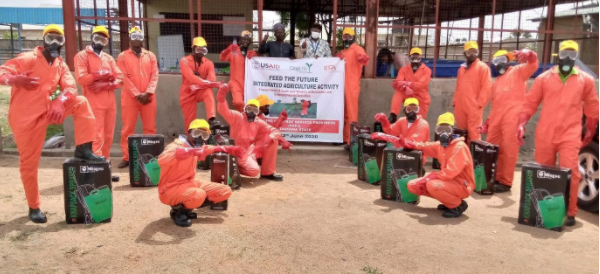
Yeshi Simon is another success story of the IAA. A 27-year-old Political Science graduate youth, Simon hails from Shagari in Yola South. With no employment after graduation in 2019, after the thawing of the COVID-19 pandemic scare in March 2021, Simon was introduced to the enterprise development training of IAA, with a specialty in Tomato Processing and marketing. At the Adamawa Agricultural Development and Investment Limited Farming Skill Acquisition Center – AADIL/FSAC, where it held, along with 30 other participants, Simon has now grown it into large production of Tomapepo, puree from tomater-Tomatoes, tatashe-Cold Pepe, atargu-Hot Pepe and albasha-Onions.
The idea was to train trainees to use evaporation to store tomatoes and others, free of any addictive and leverage on the window period where the tomato product will suffer glut. Right now, Simon grinds, steams, quality-checks, stores, labels and markets, skills she got from the IAA training. She initially sold 11 bottles of 6.5kg each of Tomapopo puree and made a net profit of ₦2,000. She today has her own brand and label and currently undergoes incubation training at the Technology Incubation Centre, Yola, where she would be taught how to standardise these products and get a NAFDAC number. Her business has so expanded that she has developed a business plan of ₦100,000 submitted to the Technology Innovation and Commercialisation (TIC) center, a subsidiary of the Federal Ministry of Science and Technology.
Halima Halidu from Guoza in Borno State, an IDP displaced from Madagali is another IAA success story. Married to a man who had four other wives, Halidu was trained in cosmetology and now produces Vaseline and liquid soap in her neighbourhood. She also sends some of the products back to her community in Guoza. Today, Halidu sells these commodities to IAA office and her livelihood has changed tremendously.
Enhancement of the people’s skill sets in income generation is essential to this IITA project. Linking farmers mentored to financial institutions and national banks, the institute ensures they also get access to credit loans. Due to the respect the institute has among stakeholders and governments – state and federal – farmers that go through this programme are connected by IITA to the Nigerian federal government’s science and technology innovation centers, so as to give them technical and financial supports. In this way, the pains of the Boko Haram war are significantly reduced on women and youths of Borno and Adamawa states.
FESTUS ADEDADAYO writes on how the International Institute of Tropical Agriculture (IITA) empowers women and youth farmers in Borno, Adamawa states as insurgent war rages
Add a comment



